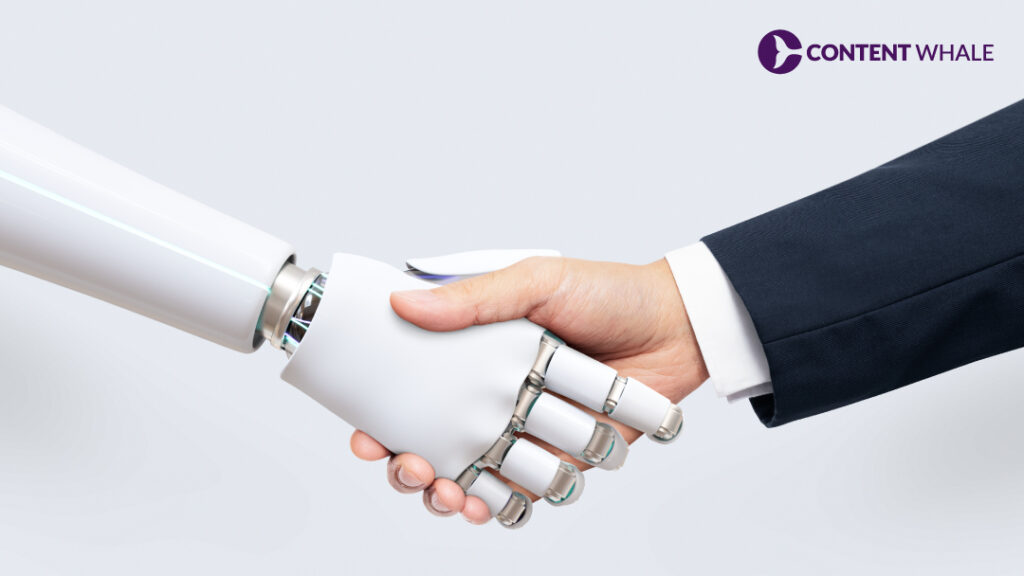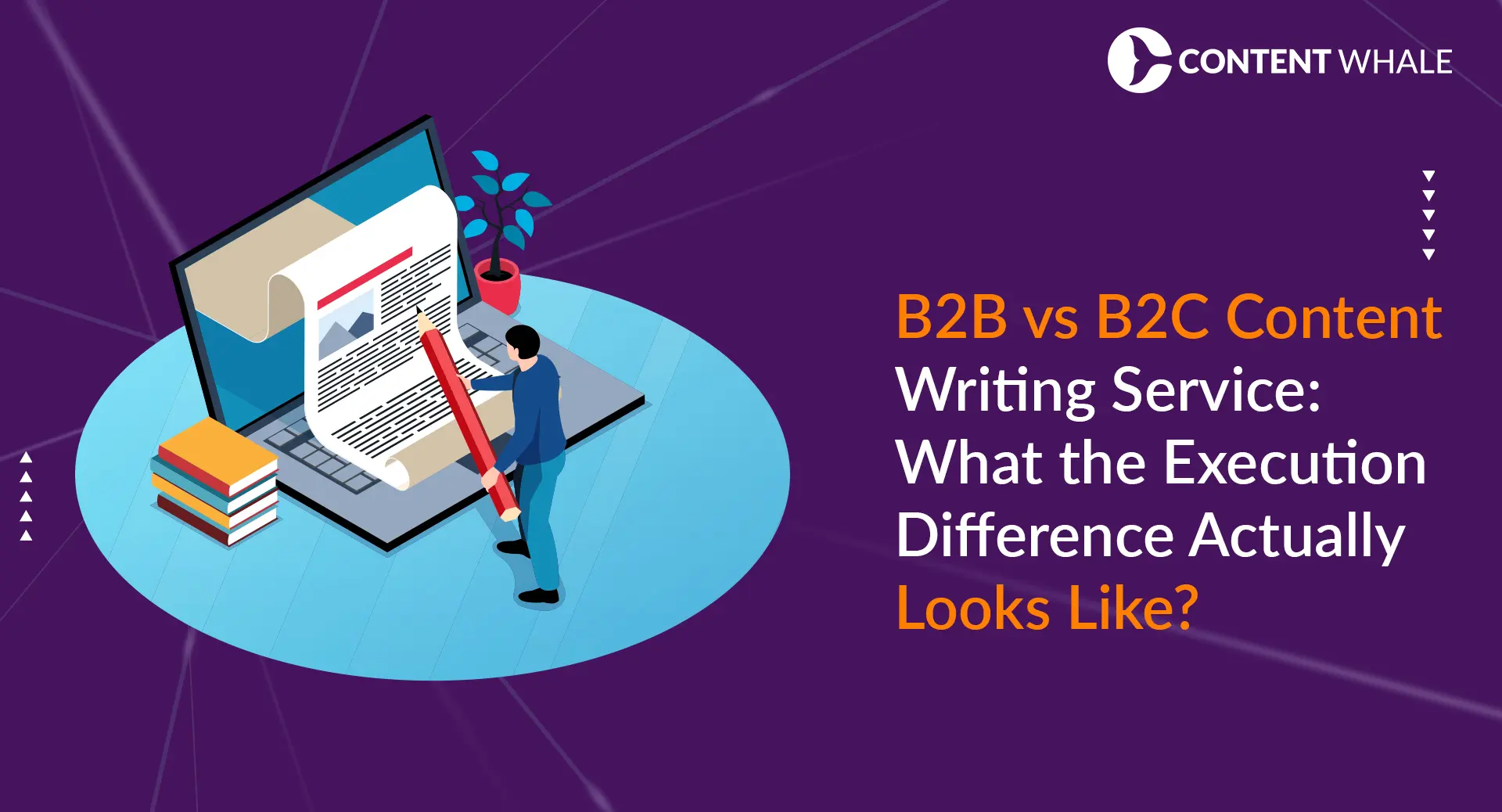How well does human writers compare to AI content writing tools? Let’s find out…
The content creation landscape has changed dramatically in the past few years, thanks to the rapid evolution of artificial intelligence (AI). AI writing tools have to become more powerful, versatile, and accessible, enabling anyone to generate content with a few clicks or commands.
But how does AI content writing tools compare with human writers, who have been honing their craft for centuries? Who is better at creating engaging, informative, and persuasive content that resonates with the audience and achieves the desired goals?
This is the question that many content marketers, writers, and consumers are asking themselves in 2026, as AI and human writers compete for attention, trust, and revenue.
In this blog post, we’ll explore the pros and cons of both AI and human writers, the challenges and limitations they face, and the future of content creation as a collaborative effort between the two. We’ll also share a case study of how Content Whale, a leading content agency, has successfully cracked content creation with AI that ranks on Google.
The Rise of AI in Content Creation

AI is not a new phenomenon in content creation. In fact, it has been around for decades, helping writers with tasks like grammar checking, spell checking, and plagiarism detection.
However, in recent years, AI has made significant leaps in generating content from scratch, thanks to advances in natural language processing (NLP) and deep learning.
One of the most notable examples of AI writing tools is OpenAI’s ChatGPT, based on GPT-4, a language model developed by OpenAI that can generate coherent and fluent text on any topic, given some input or prompt.
GPT-4 is the successor of GPT-3, and hence is even more powerful, with a larger vocabulary, more parameters, and better accuracy. It can write anything from blog posts, essays, and stories, to code, lyrics, and jokes.
AI writing tools like GPT-4 have several advantages over human writers, such as:
- Efficiency and Scalability: AI can produce content faster and in larger quantities than humans, which is ideal for high-demand content strategies that require constant updates and variations.
- Cost-Effectiveness: AI can be a more economical option in the long run, as it does not require salaries, benefits, or training. Some AI writing tools are free or low-cost, while others charge a subscription fee or a pay-per-use model.
- SEO and Data Analysis: AI can optimize content for search engines by using keywords, headings, meta tags, and other elements that improve ranking and visibility. AI can also analyze data from various sources, such as web analytics, social media, and customer feedback, and use it to create content that is relevant, personalized, and engaging. However, don’t rely too much on these sources. Please cross-check.
Strengths of Human Writers

Despite the impressive achievements of AI writing tools, human writers still have a lot to offer in the content creation domain. Human writers have skills and qualities that AI cannot (yet) replicate, such as:
- Creativity and Emotional Intelligence: Human writers can create original, unique, and compelling content that appeals to the emotions and imagination of the readers. They can use storytelling, humor, metaphors, and other literary devices to capture attention and inspire action. They can also empathize with the audience and understand their needs, preferences, and pain points.
- Adaptability and Authenticity: Human writers can adapt their tone, style, and voice to different situations, contexts, and audiences, offering a variety of perspectives and opinions. They can also express their personality and values, creating a sense of trust and rapport with the readers. They can also acknowledge and correct their mistakes, and respond to feedback and criticism.
Challenges and Limitations

Both AI and human writers face some challenges and limitations in their content creation endeavors, such as:
- For AI: AI writing tools still struggle with understanding the context, subtlety, and nuance of natural language, which can lead to errors, inconsistencies, and irrelevance. AI writing tools also lack the ethical judgment and social responsibility that human writers have, which can result in plagiarism, bias, and misinformation. AI writing tools also depend on the quality and quantity of the data they are trained on, which can limit their scope and diversity.
- For Humans: Human writers face the challenges of scalability, cost, and expertise, as they cannot produce as much content as AI, nor as cheaply or easily. Human writers also need to have a solid knowledge of the topic they are writing about, as well as the best practices and trends of content creation and SEO. Human writers also have to deal with the competition and pressure from AI writing tools, which can affect their motivation and confidence.
Content Whale’s Case Study and Real-World Applications

Content Whale is a leading content agency that provides high-quality content for various industries and niches. Content Whale has been using AI writing tools to enhance its content creation process and deliver better results for themselves. One of the AI writing tools that Content Whale uses is Copilot, an AI writer for longer pieces that can generate top-notch content that is accurate, engaging, and SEO-friendly.
Content Whale used Copilot to create a blog post on the topic “Does Google Rank AI Content – Everything You Need to Know?”, which showcases how AI can create successful content that ranks on Google. The blog post covers the following points:
- How Google evaluates content quality and relevance, using factors like E-E-A-T (Experience, Expertise, Authoritativeness, and Trustworthiness), Core Web Vitals, and Search Intent.
- How AI writing tools can help create content that meets Google’s standards, by using data analysis, keyword research, content optimization, and content improvement features.
- How Content Whale uses Copilot to create content that ranks on Google, by following a simple workflow that involves brainstorming through content gap analysis, drafting, and editing stages.
The blog post generated by Copilot was well-researched, well-written, and well-optimized, and it ranked on the first page of Google for the target keyword “Does Google Rank AI Content” on the second page. The blog post also received positive feedback from the readers, who found it informative, helpful, and interesting. The blog post also helped Content Whale establish its authority and credibility in the content industry, and attract more clients and leads.
Content Whale’s case study demonstrates how AI writing tools can be used in real-world applications to create content that achieves the desired goals and outcomes. Content Whale is not the only company that uses AI writing tools for content creation. Many other businesses and organizations, such as Forbes, The Washington Post, and The Guardian (with a love and hate relationship), have also adopted AI writing tools to enhance their content production and distribution.
The Future: Collaboration Between AI and Humans

The future of content creation is not a zero-sum game between AI and human writers. Rather, it is a collaborative effort, where AI and human writers work together to create the best possible content for the audience and the purpose. AI and human writers have complementary strengths and weaknesses, and by combining them, they can overcome their limitations and leverage their advantages.
AI can handle the heavy lifting of data processing, content generation, and content optimization, while human writers can add the creative and emotional touch, content refinement, and ethical oversight. AI can also assist human writers with tasks like grammar checking, spelling checking, synonym suggestion, topic idea generation, and reader feedback analysis. Human writers can also guide and train AI writing tools to improve their performance and quality.
By collaborating, AI and human writers can create content that is faster, cheaper, and better, while also maintaining the human connection and trust that is essential for content success.
Conclusion

AI vs human writers is one of the most hotly debated topics in the content industry today, as both have their pros and cons, challenges and limitations, and real-world applications and implications. The best way to approach this debate is not to choose one over the other, but to embrace both and use them in harmony. AI and human writers can work together to create content that is efficient, effective, and engaging, and that meets the needs and expectations of the audience and the goals of the content creator.
As a content marketer, writer, or consumer, you should stay adaptable, curious, and open-minded, and experiment with AI writing tools and human writers to find the best fit for your content needs. You should also invest in your human creativity, skills, and knowledge, as they are the key differentiators that will set you apart from the competition and the crowd. By doing so, you can stay ahead in the content game and enjoy the benefits of both AI and human writers.
If you need assistance with bulk content but with human touch, we are can provide you with AI + human content at a much more affordable price. Connect with us to know more.
FAQs
Q. Will AI replace human writers?
No, AI will not replace human writers, but it will assist them in creating better content. AI writing tools can generate basic content that doesn’t require original research or expertise, but they can’t create strategic, story-driven content that aligns with your brand and goals. Human writers can use AI to improve their writing skills, speed up their workflow, and enhance their creativity, but they still need to provide the human touch that AI lacks.
Q. Can human writing be mistaken for AI?
Yes, human writing can be mistaken for AI, especially when it comes to short and simple texts. AI writing tools have become very advanced and can generate content that is grammatically correct and contextually relevant. However, human writing often contains more descriptive and figurative language than AI writing, as well as more creativity and complexity. To avoid false AI detection, human writers should use their unique voice and perspective, and avoid generic or repetitive phrases.
Q. Can ChatGPT write better than humans?
ChatGPT is a powerful AI tool that can generate human-like text based on context and past conversations. However, it is not as good as human writers in terms of creativity, originality, accuracy, and common sense. ChatGPT often makes factual errors, repeats itself, and avoids personal or emotional expressions. Human writers can use ChatGPT to assist them, but they still need to provide the final touch and quality check that ChatGPT cannot.





